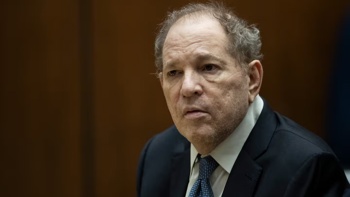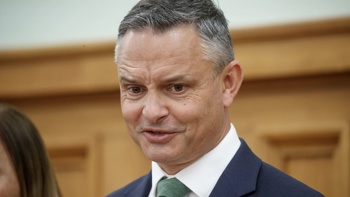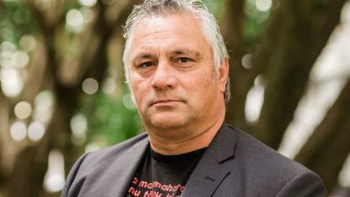
A young mother met a Nigerian scammer in an Auckland bar before agreeing to set up multiple bank accounts which were used to launder more than $1m in stolen money. She received a $20,000 cut. But despite two super sleuths uncovering the woman’s links to the elaborate fraud, police say she was “deceived” and won’t face criminal charges, leaving furious victims without justice. Lane Nichols investigates.
Aimee Chantelle Rodda is not your typical money mule.
The Auckland mum has a young child. She’s worked as an assistant manager at a well-known retail business. Her Facebook profile is littered with doting selfie images of her and her son.
But the 31-year-old is also linked to a large-scale criminal enterprise with ties to Australia and Vietnam, which has used bank accounts set up under her company’s name to steal more than $1 million from 10 unsuspecting Kiwi investors.
Fraud squad detectives have been investigating Rodda for the past 12 months, telling victims they were preparing a prosecution and she would soon face money laundering charges carrying a maximum penalty of seven years in prison.
However, stunned victims learned last week that their hopes of seeing justice for their life-changing financial losses have been dashed.
An email from police last Monday said investigators now believe Rodda was “deceived” by the organised criminal group. She mistakenly believed she had stumbled upon a legitimate investment opportunity and was unaware her accounts were being used to launder stolen cash.
Rodda refused to be interviewed by the Herald. But in a secret recording this week with a private investigator, she said the police probe into her role was now closed and “I don’t have any money”.
“I can’t help with the money, I really wish I could. I was a victim too.”
She admitted opening the bank accounts then handing control of those accounts to a Nigerian man named Samuel who she met last year in an Auckland bar.
She said she never touched the money entering and exiting her accounts, which she believed were legitimate “crypto investments”.
Asked how much she was paid for her assistance, she replied: “I don’t even know. It was probably less than $20,000 all up.”
She described the focus on her as a “witch-hunt”.

Aimee Rodda opened three bank accounts under her company's name which were then used by international criminals to launder more than $1m in stolen money from 10 Kiwi investment scam victims. Police says she was deceived and will not face criminal charges. Photo / Facebook
“I’ve had major health issues. I literally thought I was dying. I was in a really, really bad place and I thought it was my ticket out.
“I’m just trying to move on.”
The Herald understands Rodda had an “intimate relationship” with Samuel, who was staying at Auckland’s Heritage Hotel and travelling under an Australian passport.
She told police she agreed to open the bank accounts as part of a cryptocurrency business venture. She then handed full control of those accounts - including eftpos cards and PIN numbers - to Samuel but repeatedly asked for documentation about the large sums of money going in and out.
She eventually grew suspicious and confronted Samuel who admitted he was part a criminal organisation and threatened her before cutting contact.
Incredibly, Samuel left his passport in the hotel room. Police have now located the passport and know his identity.
Police say they have been liaising with New South Wales authorities in a bid to identify the criminal masterminds behind the scam, but their Australian colleagues have shelved the case due to “resourcing” issues.
With New Zealand lines of enquiry now “exhausted”, Auckland detectives have referred the case to Interpol in the hope of a potential breakthrough.
Victims who lost money through Rodda to the scam are shocked she won’t face criminal charges. They are now preparing a complaint to the Independent Police Conduct Authority and considering a private prosecution in a bid to hold someone to account.
Rodney Mathers lost $100,000 in a Suncorp investment scam. He's furious that a 'mule' connected to the case won't face criminal charges. Photo / Jason Oxenham
North Shore businessman Rodney Mathers lost $100,000 of his retirement savings. He said it was “nonsensical” that someone could open an account that received huge sums of stolen money, be paid $20,000 for their role, but face no consequences.
He wanted police to take a tougher line with scammers and those operating mule accounts.
In his opinion: “They’re acting with impunity and confidence that they’re not going to get caught, and this girl is a good example of not getting caught. She’s bullshitted her way through it.
“Police need to establish a greater deterrent than a slap on the wrist, wet bus ticket against money mules. Law enforcement activities must be introduced to safeguard the future of our nation.”
The Nelson detective and the unravelling of a global scam
A Herald investigation shows a company called CEB Holdings Ltd - of which Rodda is the sole director and shareholder - was registered in August 2022 and then used by her to open accounts at ANZ, Kiwibank and BNZ.
Scammers posing as financial advisers from Macquarie Asset Management contacted victims and convinced them to send large sums of money to the accounts in late 2022.
The money was immediately wired overseas, some to an Australian account under the name SGB Capital Holdings, or direct to bank accounts in North Vietnam.
Nelson CIB Detective John Nicholls stumbled across the elaborate scheme in January last year after being contacted by a former police colleague in Moteuka who had lost a “six-figure” sum in December 2022.
The “financial adviser” involved in the ruse went by the name of Jack Levy. He appeared to be calling from an 04 Wellington number and purported to be operating from a Wellington office.
However, Nicholls tracked the 04 number to a London company that sold internet-based global phone numbers. The company then provided Nicholls with a list of 30-odd NZ numbers that had corresponded with the scammers and he began contacting each one.
One victim had lost $200,000 in November 2022. Another, Mathers, had lost $100,000 in October the same year.
“Invariably it came back to CEB Holdings and I had to tell them the bad news,” Nicholls said.
“‘I’m sorry, you’ve just contributed to someone else’s lifestyle because you’ve lost that money. It’s gone’.”

Aimee Rodda opened three bank accounts under her company's name which were then used by international criminals to launder more than $1m in stolen money from 10 Kiwi investment scam victims. Police says she was deceived and will not face criminal charges. Photo / Facebook
In a months-long investigation, Nicholls compiled a detailed report about the scam and Rodda’s apparent links.
He identified that the offshore criminals had been running two near-identical scams - one was Macquarie, the other under the name of international finance giant BNP Paribas.
Both schemes were offering government-backed “green bonds” with interest rates a tick above those elsewhere and “touted as tax-free”.
“That was the hook, that was the inducement,” Nicholls said.
“There were two scams run by the same organisation. All they did was cut and paste the [prospectus] document and put a new heading on it. It seemed to be the same players.”
Nicholls established that about five victims had sent money to accounts under the name of Rodda’s company, with total losses in excess of $750,000. The BNP Paribas scam had taken in another five victims who lost an additional $390,000.
Nicholls said he suspected Rodda was connected to both schemes.
During his investigation, Nicholls contacted the legitimate Macquarie Group in Australia. Company officials confirmed they were aware of the ruse and that the scammers had been targeting Australian victims before turning their focus on New Zealand in about September 2022.
Some of the New Zealand investors approached by the scammers had made direct contact with the legitimate Australian company as part of their due diligence.
As a result, the Macquarie Group contacted our Financial Markets Authority (FMA) in December 2022, which posted a public warning about a fake Macquarie Asset Management renewable energy bond scheme that same month.
It warned that scammers were using a fake prospectus featuring the company’s logo and CEO’s name, claiming the bond investment was “fully authorised and regulated by the FMA”, which was untrue.
“The FMA recommends undertaking due diligence and caution before making any investment,” the warning said.
The Suncorp scam and the private investigator
That warning came too late for retired insurance broker Mathers. He’d been tricked into sending $100,000 from his Westpac account to an ANZ account under the name CEB Holdings two months earlier in October 2022.
In Mathers’ case, he spoke with a man calling himself Jack Westhorpe and thought he was investing in a 12-month Suncorp term deposit. He was told the funds were to be held in an ANZ “client escrow” account for a seven-day “cooling off” period.
Nearly six months later, he received a call from Westpac’s fraud team saying they believed he and another customer had been caught in an investment scam.
Efforts to recover the money were unsuccessful and the Banking Ombudsman recently ruled that Westpac was not liable for his losses.

Private investigator Nick Mayer compiled a detailed dossier of evidence about the money mule which he handed to police.
Mather, 76, alerted police in March last year and also hired private investigator Nick Mayer to track his stolen money.
Mayer identified Rodda as the account holder and sole director of CEB Holdings. A credit check showed she had multiple credit defaults and an adverse court judgment involving a debt recovery agency.
Mayer compiled a dossier of evidence about Rodda - including her name, several listed addresses, company directorships and her history of creditors and debts - which he forwarded to police and waited for them to pounce.
“Now that we have a named suspect they should be looking at interviewing her,” Mayer told the Herald in August.
“In a lot of these cases you’re chasing shadows, but here there’s a genuine lead.”
The money went on ‘shopping, gambling and material living’
In Nelson, Nicholls was compiling his own evidence.
According to the Companies Office, the listed address for Rodda’s company was an office in Constellation Drive, Mairangi Bay.
Nicholls arranged for police to visit the property but it was just a mailing address and they found no sign of Rodda or her company.
After speaking to victims, he filed numerous production orders forcing banks to hand over details of the suspicious money transfers and accounts, which revealed further accounts of interest “and other questionable transactions”.
One man he contacted had been on the verge of sending the scammers $1.2m when he grew suspicious and pulled out at the last moment, Nicholls said.
“He was literally about to hit the enter button.”
Nicholls established that after landing in the accounts, victims’ stolen funds were immediately transferred overseas, making it impossible to trace.
Aware that Auckland investigators were also looking into Rodda, Nicholls transferred his file north midway through last year.
“My focus was, ‘We’ve got this New Zealand contact for this scamming group and this is her name’.
“I said, ‘I’ve identified this lady. It looks to me that she’s party to this particular offending. She lives in Auckland. Here’s my file’.”
A Waitematä fraud squad detective who has been investigating Rodda’s links the scam since last year earlier told Mathers the alleged mule had no major assets, having spent the proceeds of her alleged offending on “shopping, gambling and material living”.
The victims had patiently waited for charges to be laid, but in a shock twist received a bombshell email last week.
The detective told them criminal scam syndicates used “mules” to launder money from Kiwi victims into cryptocurrency exchanges overseas, mostly in Australia.
He’d interviewed Rodda last month and believed she was deceived into opening CEB Holdings in her name, and “unaware of the accounts being used to launder the money”.
The file had now been sent to Interpol “in the hope that the [Australian Federal Police] make their own investigation, and disrupt the syndicate behind the scam”.
North Shore man Rodney Mathers lost $100,000 in an investment scam. He wants police to take a tougher line on scammers and money mules. Photo / Jason Oxenham
Mathers said the email was a kick in the guts. He believed Rodda was culpable.
“She was 100 per cent owner and 100 per cent director of the company that received my money. You can’t tell me that nine or 10 payments went into her bank account and she didn’t know anything about it and only took 20 grand. That’s bullshit.
“I wouldn’t believe a thing she says, quite frankly, and whatever she tells the police you need to take with a grain of salt.”
Police declined an interview request, but in a statement Waitematā CIB Detective Inspector Tim Williams said the Australia-based syndicate behind the scam was well connected with global organised crime groups who recruited money mules to help wash stolen money.
The syndicate had used CEB Holdings to dupe 10 Kiwis of more than $1m through its “deceitful operations”.
The company’s director believed the investment opportunity was legitimate, he said.
“We have established the director made no transfers herself, and instead they were made by the syndicate who had possession of all credit cards and online banking passwords.”
Police would prosecute anyone engaged in money laundering if there was “evidential sufficiency” under the Solicitor-General’s prosecution guidelines.
“In this specific case, the information we have gathered to date does not meet this threshold to lay charges.”
Williams said police appreciated the victims’ frustrations given their financial losses, however fraud was a complex crime, often involving foreign jurisdictions.
While police had worked through these complexities in other cases to prosecute offenders and recover funds, “unfortunately police have not always been successful in achieving all these aspects or expectations”.
HOW TO KEEP SAFE FROM SCAMMERS
- Always take a sec to check before parting with your money or personal information
- Trust your instincts – if it feels wrong, it probably is. Urgency is a red flag – scammers try to rush you
- Your bank will never ask you for passwords, log-in details, or two-factor authentication codes, nor will they send you an email or text message asking you to log in
- Your bank will never tell you to move your money to a ‘safe’ account, or ask you to use your money to help catch a scammer
- Think carefully before entering your credit card details online
- Be cautious with unsolicited texts, emails, or calls – don’t give out details that could be used to impersonate you
- Don’t click on links or open attachments from people you don’t know, or seem out of character for someone you do know. Hover over links to reveal the actual site
- Don’t respond to instructions to download unknown software – it could be malware to access your accounts
- Be careful of deals or investments that sound too good to be true – they probably are. Contact investment firms or businesses via their official New Zealand-based websites, and never via online contacts, emails, links, or phone numbers sent to you directly or from other websites on the internet
- Use strong, unique passwords and PINs for your banking – don’t write them down or record them
- If you think you’ve been scammed report it to your bank immediately
Source: New Zealand Banking Association
Lane Nichols is a senior journalist and deputy head of news based in Auckland. Before joining the Herald in 2012, he spent a decade at Wellington’s Dominion Post and the Nelson Mail.
Take your Radio, Podcasts and Music with you









